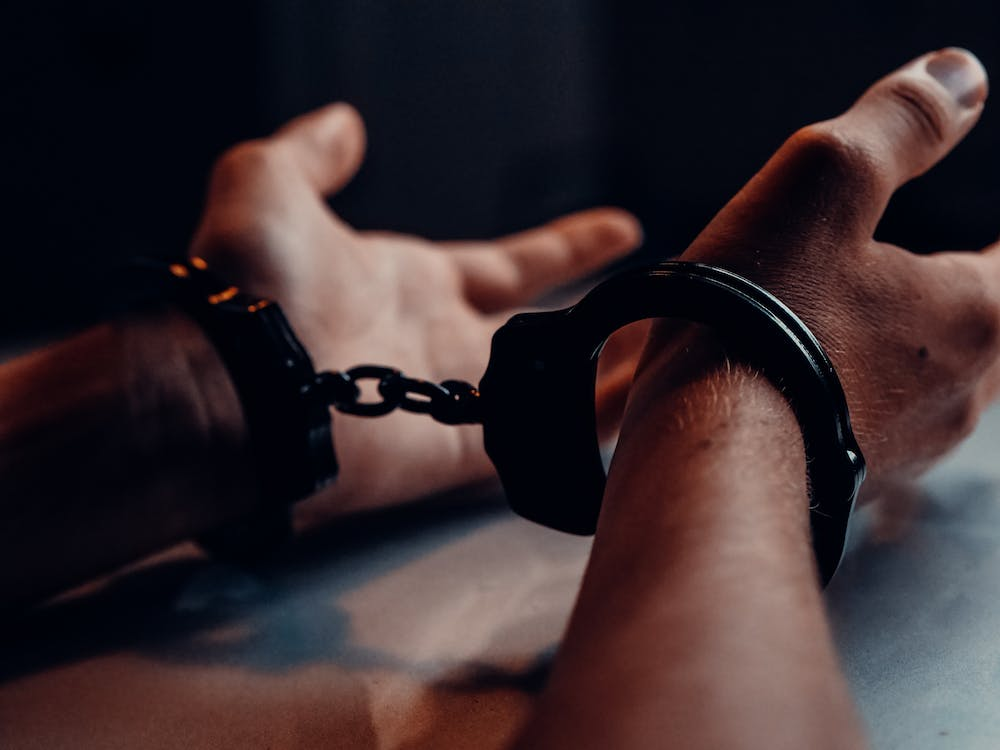




Pre-trial home confinement is also known as house arrest and can be quite exhausting and stressful, with all the restrictions imposed on the defendant.
As per this order, the court orders the accused to remain at home until the case hearing. The exceptions are only made for certain needs, such as work-related activities, or emergency needs, such as medical care.
The main purpose of this order is to monitor the movements of the accused and ensure that they appear in court when called upon. In this way, the defendant can perform all their necessary routine work.
DeLaughter Bail Bonds, serving for over a decade now, is a licensed bail bond agency that can guide you on how to deal with pre-trial home confinement.
Whether you are eligible for pre-trial home confinement depends on the court and the type of case. The decision entirely depends on the judge, who decides based on the defendant’s criminal history, responsibilities, etc.
While on pre-trial home confinement, individuals must comply with specific conditions set by the court. These conditions may include:
In the case of pre-trial home confinement, the person is instructed to wear an electronic monitoring device or a GPS. This way, the court monitors the person’s activities, ensuring their presence at the court hearing.
A curfew may be imposed, limiting the individual’s movements outside their home during specific hours. This is to ensure that they remain within the confines of their residence during designated times.

The individual is not allowed to travel anywhere outside, especially outside the city, state, or country, in pre-trial home confinement. The accused is strictly monitored and is only allowed to leave the house in certain circumstances, such as for work, visiting a healthcare professional, etc.
Pre-trial home confinement can be frustrating as the defendant is not allowed to perform various activities and is constantly monitored.
Living like this can be tough, especially when you don’t even know the complications and rules. Therefore, it is better to consult a licensed bail bonds agent to guide you all about this.
At DeLaughter Bail Bonds, we are a 24-hour bail bond service provider who can assist you with pre-trial home confinement cases. We are one of the most reputable bail bonds agencies, serving various Indiana Counties such as Kosciusko, Wabash, Whitley, Huntington, Grant, Miami, Fulton, Allen Counties, and more.
So, get in touch with us now to ease your pre-trial home confinement journey and benefit from our bail bond services.

When someone is accused of a crime and gets arrested, the first thing they want to do is to get out of jail. So, then why is turning yourself in advised?
Well, turning yourself in can be confusing, but when an individual has a warrant out for their arrest, voluntarily turning themselves in can be a responsible and proactive step towards resolving their legal situation.
DeLaughter Bail Bonds is a licensed bail bond agency that assists people with these legal issues. We are experts at providing people support with their bail bonds and guiding them through their court hearing process.
Even if a minor crime is committed, the police can visit your home to arrest you. Nobody wants to experience humiliation when a police officer knocks at their door. Therefore, turning yourself in protects your self-respect.
Turning yourself in demonstrates a willingness to take responsibility for your actions and cooperate with the legal system. By voluntarily surrendering, you show the court that you are taking the matter seriously. This may help you with your bail and throughout your case hearing.
If you believe you are a suspect in the crime, it is better to confirm whether an arrest warrant is issued. You can contact your local law department, who will provide all the details. This will set a positive image in front of the judge and will help you during the case hearing.
Before turning yourself in, it is advised to collect all the necessary documents and complete the paperwork for your bail. This may include your identification, contact information for loved ones, and any relevant legal paperwork.
Before turning yourself in, it is better to hire a law expert who can support you and take care of your case. Hiring a licensed bail bonds agent can be extremely helpful in this case. Licensed bail bondsmen can guide you through the process as well as help you get the bail by posting it on your behalf.
DeLaughter Bail Bonds is a 24-hour bail bond service provider that offers exceptional services. We can help you understand your rights and the charges you may be facing and assist in developing a defense strategy.

If you can’t afford the bail, all you have to do is contact an affordable bail bonds service provider, who will post the bail on your behalf. Whatever the bail amount is, you will have to pay 10% of that as service charges to your bail bonds agency and they will take care of your whole bail amount.
Turning yourself in can be a tough decision to make but remember that with bail bonds agencies like DeLaughter Bail Bonds, you don’t have to worry about anything.
We have been working for over a decade now and will guide you through the legal process and provide you with surety and transfer bond services. We serve in various Indiana Counties such as Kosciusko, Wabash, Whitley, Huntington, and more.
So, reach out to us today to ease your legal process by getting expert guidance and bail bond services.

Summer is a time of joy and celebration, and spending time with family and loved ones is a top priority for many people during this time. People schedule various events and activities to make the most of the pleasant weather. The last thing one wants is a disruption to their events due to unforeseen circumstances involving an arrest or legal trouble.
In light of these potential disruptions, bail bond companies can offer valuable assistance to individuals who find themselves in legal trouble during this time. Here’s how a bail bond company can help you avoid event disruptions and ensure a smooth legal process.
One of the key ways in which a bail bond company can help individuals stay out of trouble is by offering 24/7 bail bond services. Legal troubles can arise at any time and on any day, including weekends and holidays. However, with a 24-hour bail bond company, individuals can rest assured that they will be able to obtain bail at any time of the day or night.
Summer parties and events often involve friends and family, and the last thing one wants is to draw attention to their legal troubles. If you don’t want to make a public spectacle of your legal issues, a bail bond company can provide discrete and confidential services to ensure that the process does not interfere with your gatherings.
A discrete bail bond company can help file all the paperwork and release your loved ones from custody, without drawing unwanted attention to the situation. You can enjoy your events without worrying about their arrest interfering with your celebrations.
Navigating the legal system can be overwhelming and confusing. However, a licensed bail bond agent who has professional expertise in dealing with legal matters can provide valuable guidance and assistance. By leveraging their expertise, a bail bond company can help you through the legal processes, answer your questions and concerns promptly, and navigate the complexities of posting bail.
Vacation plans involve a plethora of expenses, and legal trouble can quickly add to the financial strain. The cost of a bail bond can be significant, but bail bond companies provide flexible payment options that can help manage the financial burden. This can make a significant difference in ensuring individuals can secure their release from custody without financial difficulties.

If you’re facing legal issues, our bail bond company can offer valuable assistance and support. At DeLaughter Bail Bonds, we understand the importance of timely and discrete services, professional expertise, and flexible payment options.
Our 24-hour bail bond service is available in Kosciusko County, Wabash County, Whitley County, Huntington County, Grant County, Miami County, and surrounding places in Indiana.
Contact us to learn more about our bail bond services!


Bail bonds can help you get out of jail. A bail bond allows you to get out of the law enforcement agency’s custody by paying some cash or otherwise.
DeLaughter Bail Bonds, a 24-hour bail bonds agency, can help you pay the bail amount. If the bond is paid in cash, the bond amount is refunded once the case is dismissed. However, in the case of a surety bond, around 10% of the amount is posted to the court by a bondsman.
However, there are still a lot of misconceptions about posting bail that must be debunked.
Now, this is one of the most common misconceptions about posting bail. Many believe that anyone accused of any crime can post bail. This is not true at all. Murder and treason are unbailable crimes. Anyone proven to have committed murder or treason cannot be bailed out. However, for other crimes, the person can post bail.
Another common misconception about posting bail is that it is too expensive. The truth is that whatever the bail amount is decided by the court of law, all has to be paid. This is possible if the person connects with a bail bond agency like DeLaughter Bail Bonds.
In this case, the licensed bail bonds agent posts bail on behalf of the defendant. When the amount is refunded, it goes to the agency. In return, they charge a small percentage of their fee as per their state laws.

This misconception about posting bail needs to be debunked as well. The individual is not asked to pay the whole bail amount. If the defendant has to pay a cash bond, they can consult the bail bond agency so that they can pay the amount for them for a certain fee.
However, if the surety bond is being paid, the agency will only have to pay around 10% of the total bail amount. DeLaughter Bail Bonds’ 24-hour bail bond service can help you with this.
Getting bailed out does not mean that the person is allowed to do everything. When a person is set out of jail on bail, they need to follow some limitations. For instance, the person is not allowed to maintain any form of contact with the opposite party.
A very common misconception about posting bail is when people believe that bailing out means that the case is closed. Bailing out means that the person will no longer be in police custody but will have to appear whenever the court calls them for their case hearing.
In case of skipping the bail, the court can take strict action, which includes immediate arrest and penalties. You can contact us for 24-hour bail bond services and know all the technicalities.
Getting arrested can be distressing, but it is easy to post bail, get out of jail, and then reappear before the court on the scheduled date for the decision.
DeLaughter Bail Bonds can help you out in these stressful times. We are licensed bail bond agents, providing affordable bail bonds in Wabash County, Fulton County, Huntington County, Whitley Country, and other areas of Indiana. We offer surety and transfer bonds.
So, remove these misconceptions about posting bail, and contact us in times of need.

Anyone can go through awful times, but in such times all you need is support in some form. There are instances when even a slight error can get us arrested, which can be humiliating and worrisome.
A bail bond allows an individual arrested for a crime to get out of jail by paying the court a set amount. The accused is required to appear before the judge whenever called.
In cases like these, bail bond agencies play a vital role. They provide a guarantee in the form of surety bonds that the person will appear in court whenever called. DeLaughter Bail Bonds provides bail bond Services in Huntington County, IN, and other areas.
However, on skipping any bail, the defendant would have to bear some series consequences.
When a person skips bail, they fail to appear in court as required after being released from custody on bail. Here’s what they have to face;
On skipping bail, an arrest warrant will be issued in the accused person’s name. The court will order the law enforcement agency to arrest the person immediately, wherever they are found, and present them before the court of law.

When the suspect skips bail, the court orders them to forfeit their assets or the money they secured as bail. This causes financial damage, as per the bail amount set by the government or the type of felony. DeLaughter Bail Bonds is a 24-hour bail bond service that can help you.
In addition to the already present charges, the court will add some more criminal charges for skipping the bail. This leads to even more financial damage as the person will have to pay a certain amount in fines.
Nobody wants to have criminal charges under their name and wants to get rid of them as soon as possible. Skipping the bail delays your court session, in turn delaying justice. Therefore, it is better to always appear before the court on the scheduled date.
It is important to note that the consequences of skipping bail depend on the severity of the crime. However, what the case may be, always appear on the scheduled date to avoid consequences.
DeLaughter Bail Bonds can help you out in these cases. We are a 24-hour bail bond service provider, who offers surety bail as well as transfer bail. We offer affordable bail bonds in Wabash County, Fulton County, Huntington County, Whitley Country, and other areas of Indiana.
So, no need to stress out. Contact us today, and we will help you with your bail.

Being accused and taken into custody for a crime has a significant adverse impact on the mental health of the arrested individual. The first thing they usually think about is the time frame of getting out of jail.
Now, this entirely depends on several different factors, such as the severity of the crime, previous history, etc.
However, one way to leave the prison is by posting bail. Sometimes, there is confusion about the difference between bail and bond.
A bail does not imply that the accused is free from all the charges. The court only allows the defendant to leave jail and present themselves at the court hearing. Failure to do so leads to severe consequences.
To recognize the difference between bail and bond, we need to understand that sometimes, the bail amount is unaffordable for an individual. In this case, a bail bond can be signed with a bail bond agency, which posts bail on behalf of the defendant. DeLaughter Bail Bonds has been providing this support for over a decade to various Indiana counties.
In case of a bail, the defender has to pay the whole bail amount to the court. However, when a bail bond is signed, the licensed bail bondsmen post the bail to the court. The defender has to only pay a 10% service fee to the licensed bail bonds agent with collatera, in case the accused skips bail.
DeLaughter Bail Bonds ensures that the defender appears before the court.
If the defender fails to appear in court, the whole paid bail amount is kept by the court in addition to the issuance of an arrest warrant.
In case of a bail bond, the defender has to place collaterals in the bond. If the defender does not go to the court hearing, apart from the arrest warrant, the bail bond agency can confiscate the collateral.

In case of bail, the paid amount is returned by the court once the case is closed and dismissed. The defender can submit a refund request.
While in bonds, any refundable amount goes to the bail bond agent by the court, and the service fee amount is not refunded to the defender.
When wanting to get your beloved out of jail, knowing the difference between bail and bond is essential. Delaughter Bail Bonds is a group of one of the most trusted, reliable, and experienced licensed bail bond agents. We offer surety and transfer bonds to our clients.
Having been in the industry for over 10 years has allowed us to spread our expertise in bail bond services to Kosciusko County, Wabash County, Whitley County, Huntington County, Grant County, Miami County and other Indiana counties.
Get in touch with us so that we can take care of your bailing issues.

When someone is arrested and sent to jail, the only thought they have is to get out of it soon. Undoubtedly, getting jailed is devastating. People may encounter different mental health issues, including PTSD.
Undoubtedly, their loved ones try their best to bring the accused out of jail by posting bail. However, legal processes are complex, and it might take some time to bail out someone.
It is important to know how you can speed up the process of bail in Indiana. There are bail bond agencies which provide guidance as well as financial support in this regard.
DeLaughter Bail Bonds is a 24-hour bail bond service provider that assists its clients in Indiana.
If you’re looking to speed up the bail process in Indiana, there are several effective ways to expedite the proceedings. Here are five strategies to consider:
First of all, find out about the bail amount. The state of Indiana has different bail amounts as per the crime. Once you find out the bail amount, you will know whether you can pay it on your own or need assistance from a bail bonds agency.
If the amount can be paid, pay the whole bail amount for the bail or contact a professional bail bonds company like DeLaughter Bail Bonds.
One of the most effective methods to speed up the process of Bail in Indiana is consulting licensed bail bondsmen.
Engaging the services of a trustworthy bail bondsman can notably accelerate the process of bail in Indiana. Licensed bail bondsmen will post bail on behalf of the defendant, minimizing the time spent in custody.

In some cases, you might need collaterals as well. If it is required for the bail bond, then it is wise to keep all the required documents ready. This may include property ownership, vehicle documents, and other valuables.
Ensure that all official formalities and forms are filled out correctly and completely. Any missing or inaccurate information can cause delays in the process of bail in Indiana. Double-check all paperwork before submission to reduce errors and delays.
It’s important to note that the bail process can vary depending on the specific circumstances of the case and the court’s workload.
However, to speed up the process of bail in Indiana, it is best to get all the information beforehand and then contact an experienced bail bond agency like DeLaughter Bail Bonds.
We are a licensed bail bonds agency serving various counties in Indiana. We provide surety and transfer bonds in addition to our expert guidance.
So, reach out to us to accelerate the process of bail in Indiana and free your loved one from behind bars.

When someone is arrested, they’re not the only one who goes through emotional turmoil. Their loved ones are affected as well. They try their best to free them from prison, opting for various ways.
These legal procedures can cost money. When posting bail for a loved one, the bail amount depends upon the severity of the crime. When posting bail for a loved one, it’s natural to look for ways to save money while still meeting the bail requirements.
Contacting an affordable bail bonds agency like DeLaughter Bail Bonds can help you save money. Here are some useful ways to save when posting bail:
Posting bail for a loved one can cost a hefty amount. If you are looking for a bail bonds agency in Wabash County, look for an affordable bail bondsman in Wabash County.
Working with a licensed bail bonds agent is cost-effective as well since you don’t have to pay the whole bail amount. When you contact a bail bonds agency, they post bail on behalf of the defendant, charging just a certain percentage of the total bail amount as service charges.
Before selecting a bail bonds agency, gather information and go through different agencies. Compare their prices and what they have to offer before making any decision.
Although the rates are usually as per the state laws, it is still better to ask different licensed bail bondsmen for prices as well as reviews and experience.

In some cases, when posting bail for a loved one, licensed bail bondsmen may require collateral as security against the bail bond. You can negotiate with them to find out the possibilities.
However, if you find another co-signer, there are chances that the collateral need can be reduced, saving you money.
When posting bail for a loved one, there are chances of you being a co-signer as well. However, it is advised to check all the obligations and legalities of a co-signer thoroughly.
Be aware that in case of any trouble by the defendant, you, as a co-signer, will also be held accountable.
There are various ways to save when posting bail for a loved one. DeLaughter Bail Bonds is a licensed bail bond agency that provides its services in multiple Indiana states, including Kosciusko County, Wabash County, Whitley County, Huntington County, Grant County, Miami County, Fulton County, Allen County and more.
We have been in business for over a decade now and are one of the most trusted agencies, proving 24-hour bail bond services.
So, get in touch with us when posting bail for a loved one and save money.